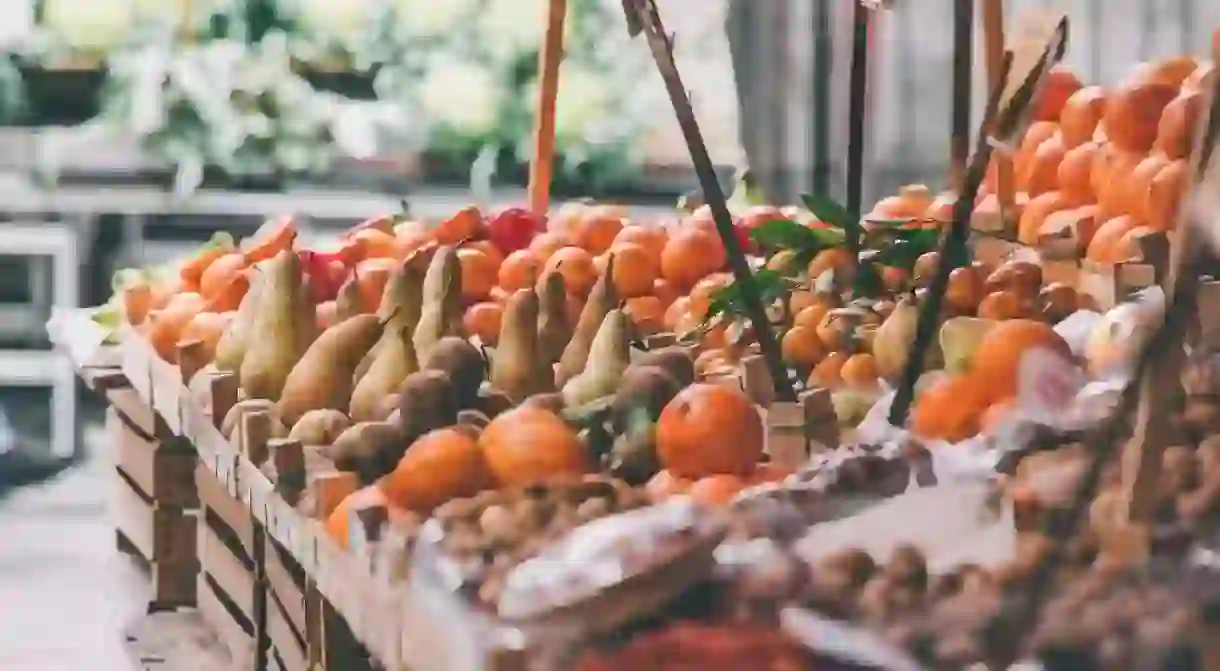The 8 Best Markets in Sicily, Italy

To really get a feel for the food culture in Sicily, visiting an open-air market is a must. There are regular markets in pretty much every town on the island, while smaller villages tend to only have them once or twice a week. They’re usually only open in the morning, so begin your day with a pre-lunch visit. Here’s a guide to some of the best food markets in Sicily.
Ballarò
Market

La Vucciria
Market, Italian

Comprised of two squares in the heart of Palermo – Piazza Caracciolo and Piazza Garraffello – La Vucciria was founded more than 1,000 years ago by North African invaders and inspired Italian artist and politician Renato Guttuso’s most famous painting, Vucciria di Palermo, in 1974. Once a flourishing market selling an extensive variety of food and household products, it’s now much quieter during the daytime compared to several other markets in Palermo. Night, however, is when La Vucciria really bursts into life, bringing an eclectic mix of people together to eat, drink and dance until the early hours of the morning.
Il Capo
Farmers' Market, Street Food

Mercato del Pesce di Trapani
Market, Seafood
The treasures of the surrounding waters are all on display at the Mercato del Pesce di Trapani where the salty smell of the sea hangs in the air. Thick, red slabs of tuna and swordfish are cut to order alongside artfully arranged piles of silvery anchovies and sardines. Heaps of rosy shrimp, white squid, lobsters, eels and octopus – you name it, they’re usually all on offer, fresh from the Mediterranean. The real action happens in the earliest part of the day before the sun has fully risen as this is when the freshest produce is available, but there is plenty to see (and buy) until late morning. The fishermen’s boats are just as picturesque as their catch, so be sure to take a stroll along the pier while you’re there.
Mercato di Ortigia
Market

Fera o' Luni
Market, Italian
In the lively city centre of Catania you’ll find the market Fera ‘o Luni near Piazza Carlo Alberto. The farmland in this part of Sicily is particularly fertile due to the volcanic ash of nearby Mount Etna and the produce you’ll see here is truly seasonal, from piles of citrus fruits in the winter months to tables of plump tomatoes in the height of summer. There are plenty of additional stalls that sell household goods, clothing and handcrafted souvenirs.
La Pescheria di Catania
Market, Seafood

About a 15-minute walk from Fera o’ Luni, you’ll find La Pescheria – often regarded as the number one fish market in Sicily, and one of the best in Italy – in the Piazza Alonzo di Benedetto, right next to Catania Cathedral. Even if you have no intention of buying anything, wandering through this lively market, browsing the vast array of seafood on display, and watching the local fishermen prepare their produce as they yell in local dialects is an enthralling experience. Wearing closed shoes rather than sandals or flip-flops is a sensible idea here. Once you’re done exploring, take your pick from the excellent seafood restaurants in the surrounding streets for a taste of the local catch in a more relaxed setting.
Mercato del Pesce di Sciacca
Market, Seafood
If you want to visit a market where only the locals go, then it’s worth taking a trip to the town of Sciacca on the southwestern coast of Sicily. The fish market there is much smaller than those in Trapani or Catania, and much less hectic. If you get there early enough, you’ll be able to watch the fishermen unload their catch straight from the harbour.
Trips and Tours in Italy
Architectural Landmark

Planning your holidays in Italy? We have an incredible collection of multi-day tour packages all over the country, including a number of amazing Sicily itineraries, ranging in length and cost. Check those out, as well as trips to Tuscany, the Dolomites and so much more, by clicking the button below.
This is an updated version of an article originally written by Gillian McGuire.













